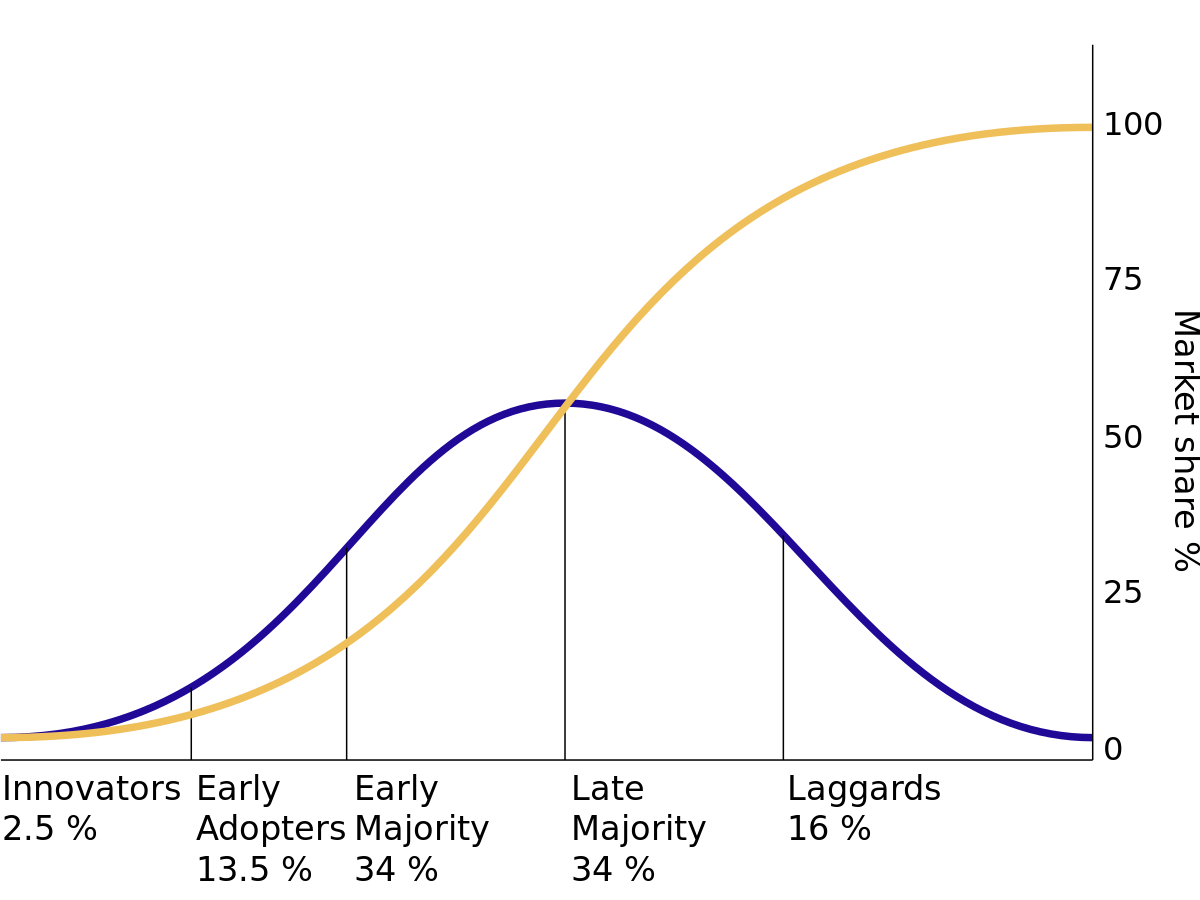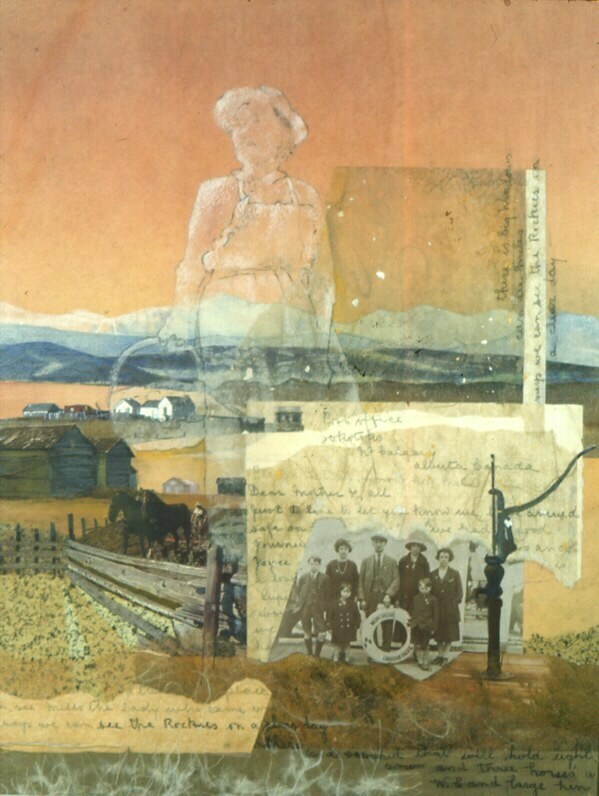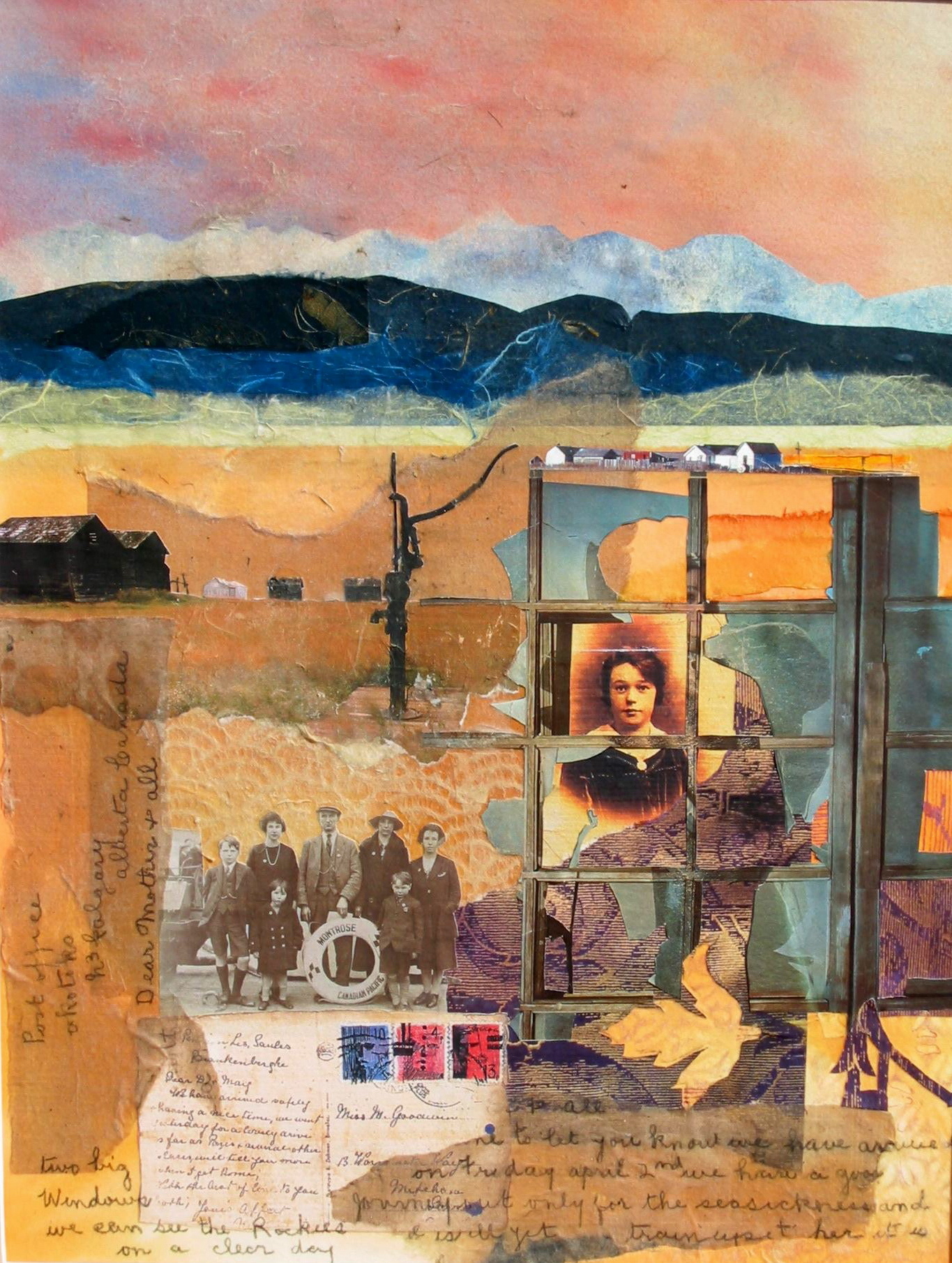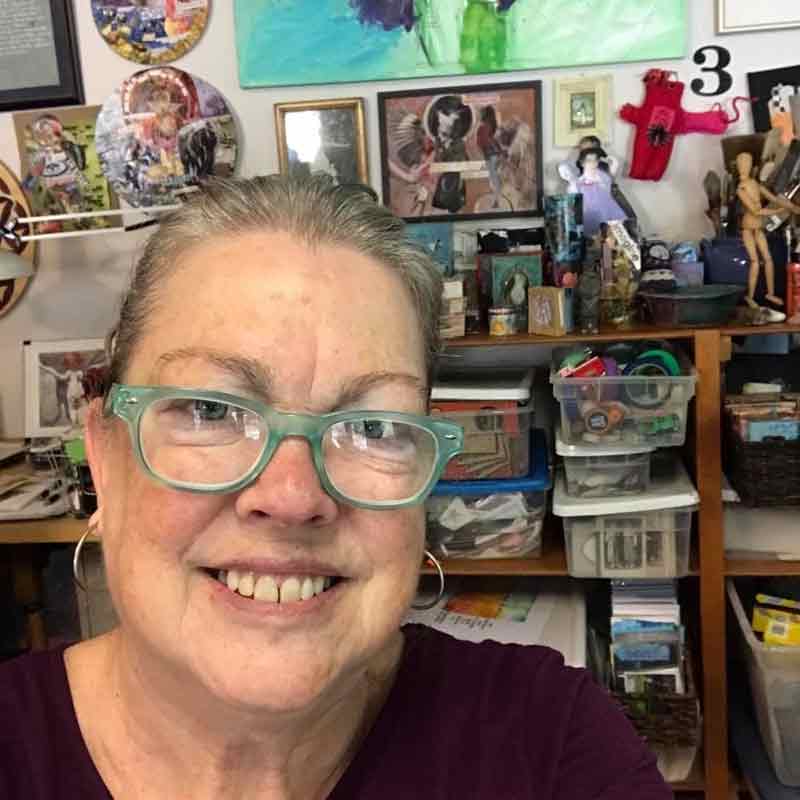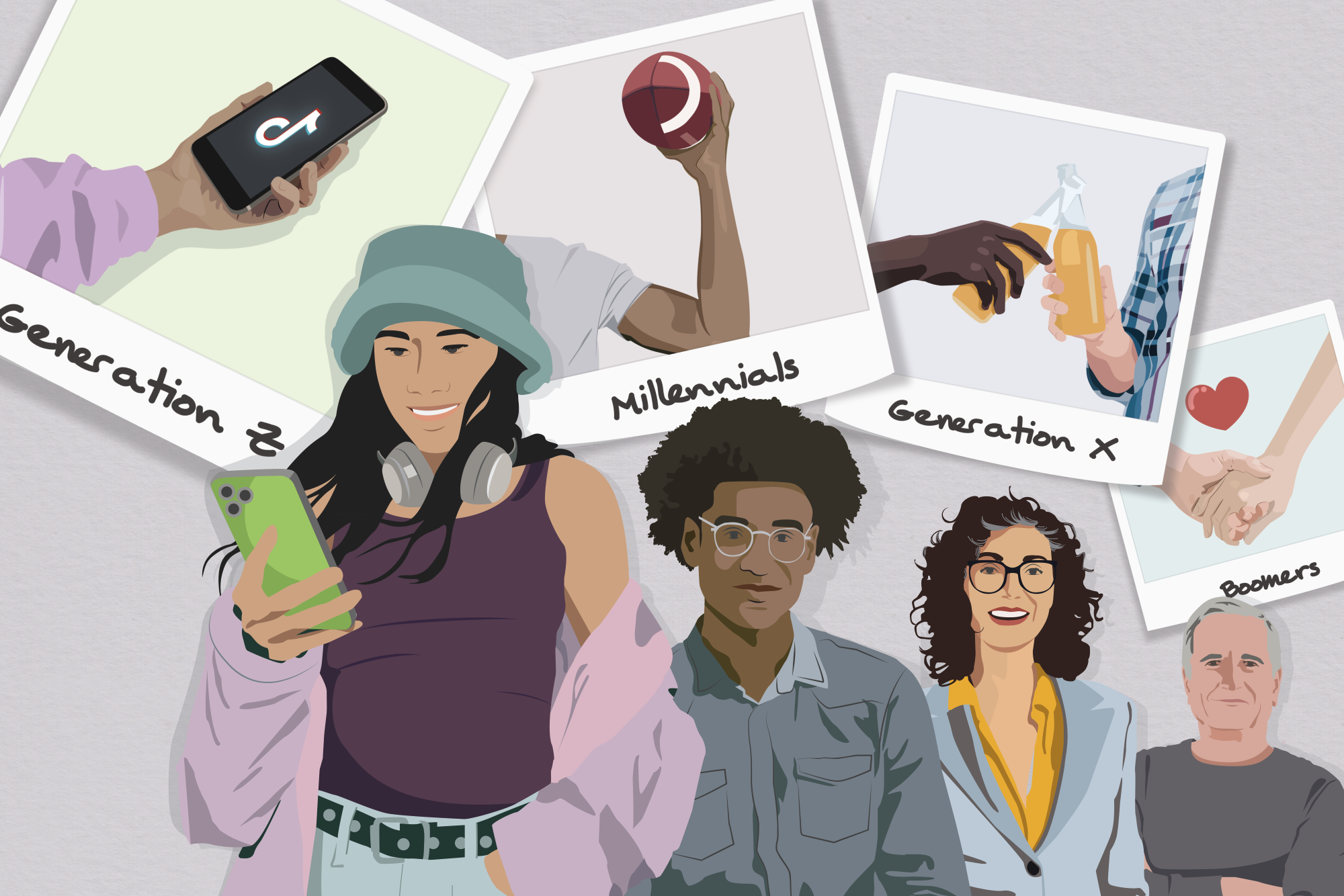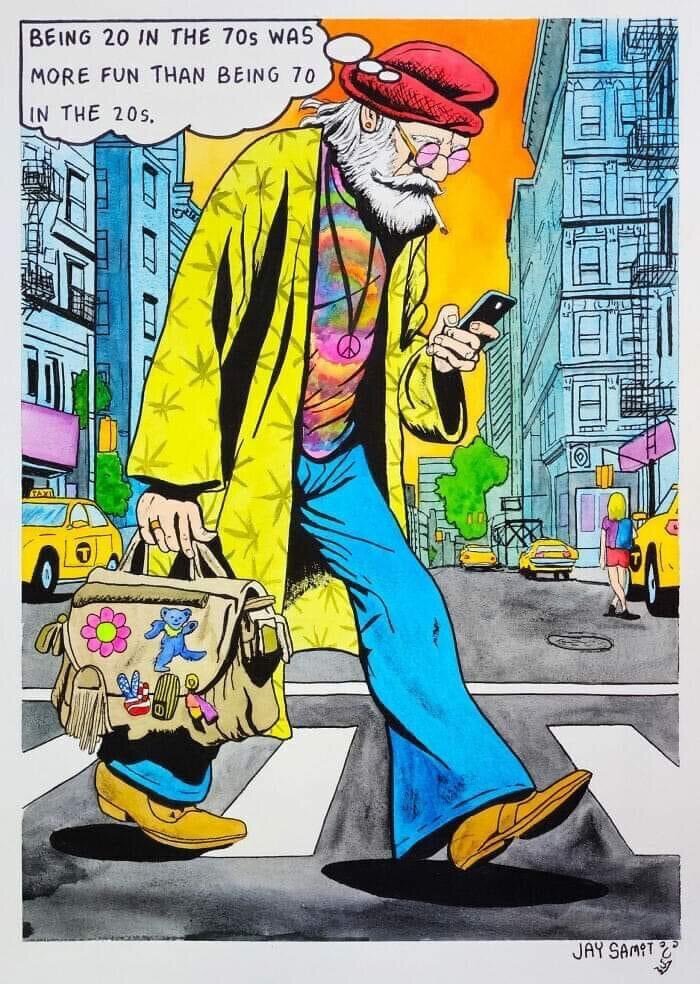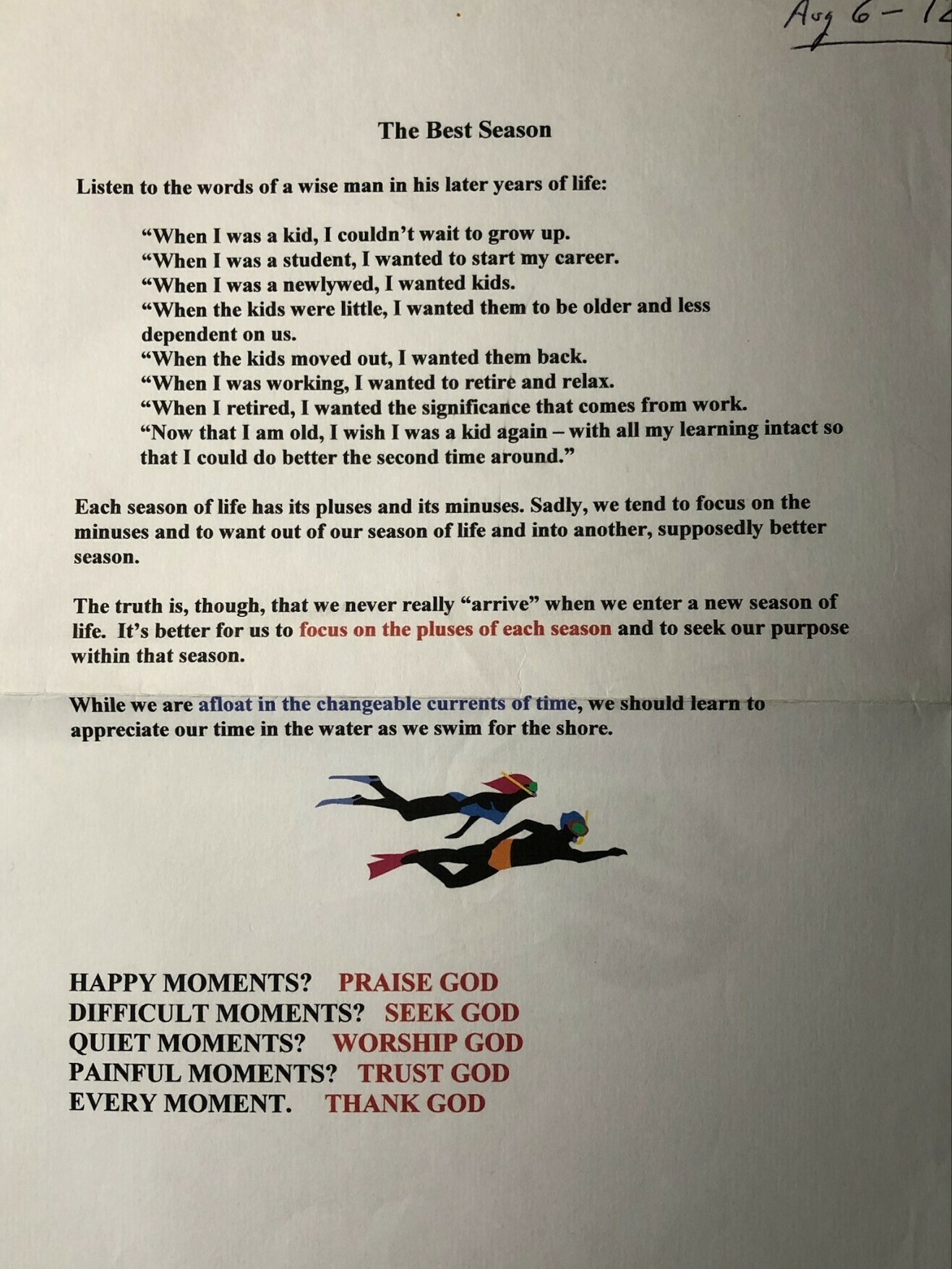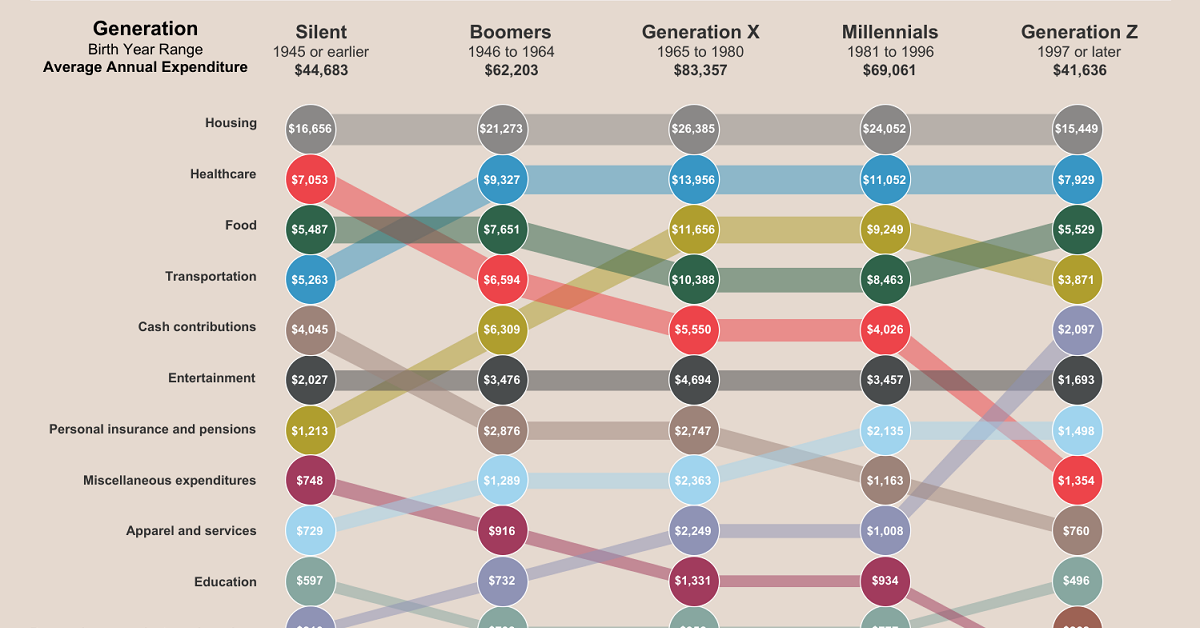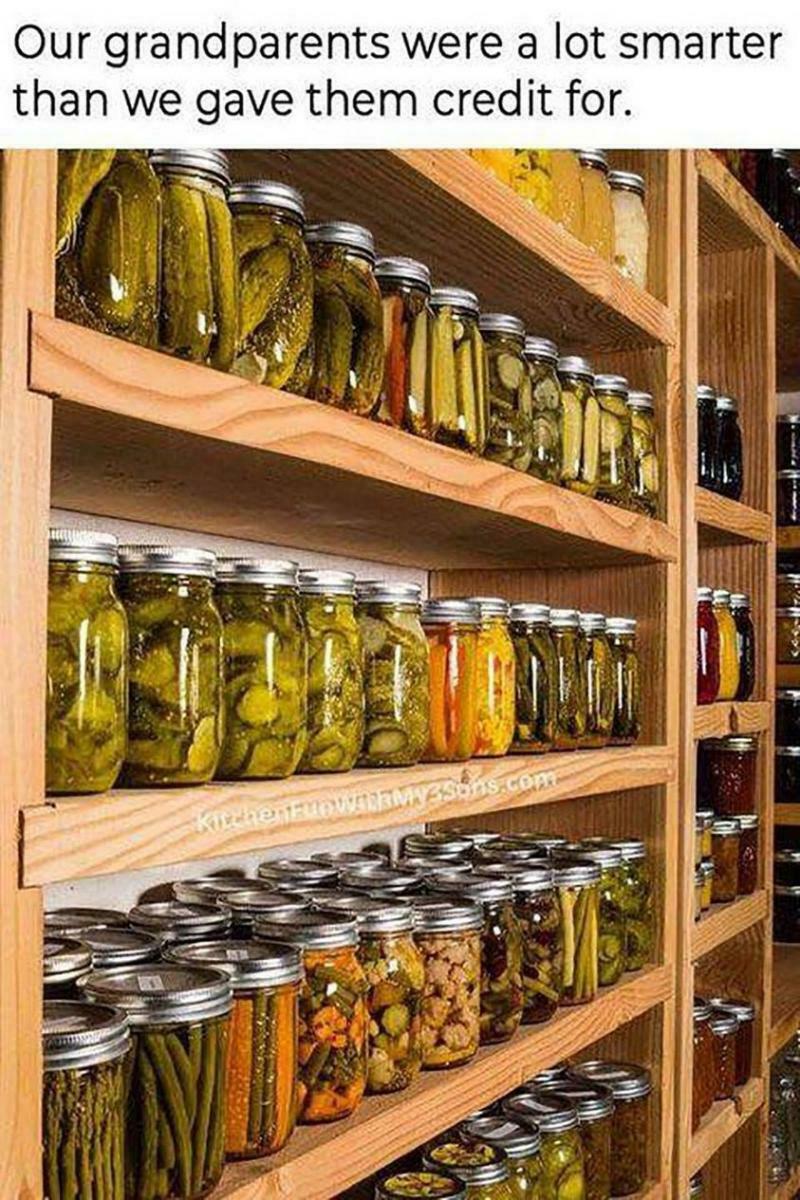I was pondering the concept of "generations" today. The concept makes sense because, as technology advances, people born at different times experience different childhoods. "Generation" also means children, who then go on to have children, etc. But I decided to see what happens if we abandon the requirement that people be direct descendants and simply focus on the idea of childhoods with different technologies. I made a list of major technologies that I thought could be defining of childhood experience, arbitrarily defined "childhood" as birth to age 12, so age 13 onward would count as "adolescence" rather than "childhood", and then looked up the history of various technologies and squinted at various technology adoption curves. For the final step, I abandoned the traditional labels ("baby boomers", "gen X", "millennials", "gen Z", "gen alpha", etc) and simply labeled each "generation" for the technology that "distinguishes its childhood" from the childhoods of preceding generations. The end result was the following list:
Born 1838 to 1912 == the manufactured products generation
Born 1913 to 1922 == the home electrification generation
Born 1923 to 1942 == the automobile generation
Born 1943 to 1973 == the television generation
Born 1974 to 1986 == the home computer generation
Born 1987 to 1999 == the internet generation
Born 2000 to 2010 == the smartphone generation
Born 2011 to present == the AI generation
For manufactured products, I actually went with textiles (clothing), and for the US specifically rather than other parts of the world. The above refers specifically to the US -- you'll have to jiggle the dates to get other parts of the world.
For "AI generation", I thought of calling it "generative AI generation", but decided it was too cumbersome. But I was thinking, ChatGPT and image generators like DALL-E came out in 2022 and reached 50% adoption in 2023, so anyone born in 2011 will be 12 in 2023 when adoption reached 50%. AI existed before "generative" AI but it seems like it's "generative" AI that subjectively makes the world feel like a different place.
I was born in 1970, but because home computers, for me, showed up when I was 9 (I, or more precisely my dad, was ahead of the adoption curve), I count myself as a member of "the home computer generation" -- my childhood was distinguished from other generations by the presence of home computers and the absense of technology that came later (internet, smartphones, etc). (That computer was a TRS-80 Model III, in case you were wondering.)
